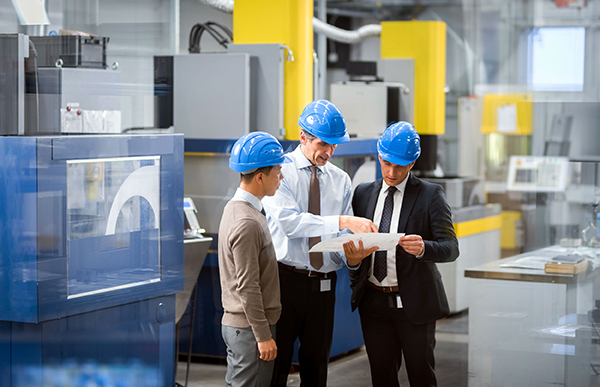How-to guidance on strategies and best practices to accelerate manufacturing decarbonization.

By Clemence Fischer, Director, Sustainability Solutions at ENGIE Impact
Industrial and manufacturing companies are facing increasing pressure to adapt new processes and resources in line with global sustainability goals in the effort to limit global warming and mitigate the worst effects of climate change. As one of the largest contributors of greenhouse gas emissions, accounting for 30% or roughly 14 billion tons of direct and indirect CO2 emissions worldwide, manufacturing is one of the most challenging – and most urgent – priorities for industrial decarbonization.
ENGIE Impact and the World Business Council for Sustainable Development (WBCSD) have partnered to bring together sustainability experts and leaders for the Net Zero Manufacturing Masterclass series. The five-part series is dedicated to developing a set of principles that manufacturing companies across the world may use to immediately scale up their decarbonization efforts. ENGIE Impact delivers sustainability solutions and services globally, helping organizations establish and achieve decarbonization goals with tailored roadmaps – from strategy to implementation.
Achieving the scale of emissions reductions needed to meet our targets will likely be the largest transformation most companies will ever face—impacting their entire value chain and each of their stakeholders. It will also involve continuous, multi-year engagement and the introduction of innovative technologies, investments, and flexible solutions. Companies know they need to act and have set ambitious goals, yet surprisingly few are prepared to successfully deliver their transformation.
As companies start on their journey to tackle the decarbonization transition in manufacturing more effectively, they must focus on four key areas including:
1) Creating integrated solutions by optimizing available decarbonization levers
2) Making a fundamental shift in the way the company thinks about net-zero, and finding the right way to finance it
3) Creating a decarbonization playbook that can serve as a template
4) Adapting to the company’s net-zero transformation readiness and prioritizing where to start
Reducing energy use is often the most effective and efficient way companies can reduce their overall emissions. So, when manufacturing companies are looking to reduce their carbon emissions, they should first focus on what energy efficiency opportunities are easily within reach. Energy efficiency can be split into two complementary streams: reducing final energy demand (using less energy) and optimizing utility production (using energy more efficiently). Many of these fixes might seem like minor system adjustments, but harnessing untapped potential is a critical part of reducing your overall energy consumption. Implementing an energy efficiency program across your manufacturing footprint requires sufficient resources and planning, adopting the proper best practices to ensure a successful rollout.
While you’ll certainly be making decisions based on what’s possible today, you also need to be aware of what’s coming. Heat decarbonization is a challenging area, but there is movement across the manufacturing industry—organizations establishing pilots and leading the way. Options for accelerating our decarbonization efforts are available; developing a robust strategy and finding the right balance are the first steps on the sustainability journey.
To gain a better understanding of how to implement a Net Zero roadmap that generates momentum across sectors, and to enable your businesses to move from intention to implementation of their decarbonization strategies, please visit our insights page for further details (below) and follow along as ENGIE Impact and WBCSD publish key findings from each of the five Net Zero Manufacturing Masterclass sessions. A summary report is expected to be shared later this year.
Scott Ellyson, CEO of East West Manufacturing, brings decades of global manufacturing and supply chain leadership to the conversation. In this episode, he shares practical insights on scaling operations, navigating complexity, and building resilient manufacturing networks in an increasingly connected world.